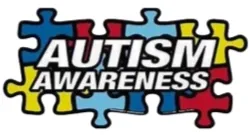Life is a balance of holding on and letting go ~ Rumi
How to Study in College, by Frank Healy, LPC
Most college students juggle their schoolwork with jobs, school activities, social life, and relationships. When it is time to study you need to remind yourself that this is all that you need to do now. Take some deep breaths to clear your head of distracting thoughts. When you have distracting thoughts, remind yourself that this is what minds do. Let the thoughts go and remind yourself that this is the time to focus on the material. It helps to stay in a quiet place and to study in the same place all the time. If the dorm room or Fraternity/Sorority house is too noisy go the library or another quiet place.
Budget your time so you will spend enough time studying each subject to fare well. A general rule is to spend three times the amount of time in the classroom for each subject. For example, If you spend three hours a week in the classroom spend nine hours a week studying that subject. Naturally you will spend more time on a subject before a test or project is due, and less time for a few days afterwards. But classroom time times three should be the general rule.
The best times to study are an hour or two hours before bed. When study is your last activity before bed you keep more information than if you concentrated on Facebook, a video game or other activity. You keep the last thing you learned because the brain had all night to process it while you slept.
More importantly, do not compare yourself to other students. When I taught college students who struggled, they shared that they caught themselves not understanding a paragraph they had just read. Then they got discouraged and wanted to throw the book across the room. The problem was that they focused on their performance, and consequentially did not focus on the material. This led to frustration and poor performance. Don’t get down on yourself if you had to read the material over. Just accept that and read it again. Do not go to a party or any distracting activity the night before a test.
When I was in college, students used to brag that they stayed up all night, went to a major league baseball game, or a concert the night before a test and still got an “A” on the test. I never believed any of it. Take a test when you are in the same physical, mental, and emotional state that you were in when you studied. There is a principle called State Dependent Memory. It means that you keep more information when you are in the same state as when you learned it.
Many students study all night two nights before a test then get a good rest the night before so they will be well rested. This might seem like common sense. However, state dependent memory says if you studied tired you will remember more if you take the test tired. Multitasking is a myth. when people multitask they do not do any single task as well as when they do the task by itself. Study one subject at a time. If you have ADHD or a short attention span divide your time with each subject at short intervals. A half hour for each subject works. Finally, do not make studying the only thing you do. Have a social life and be in activities. College can be a challenging time.











